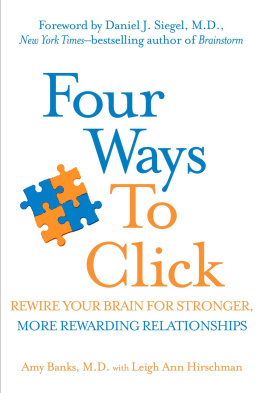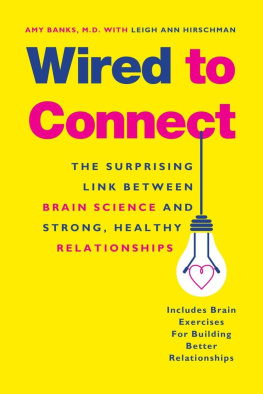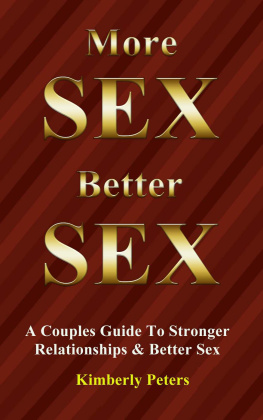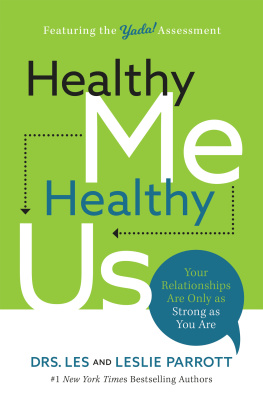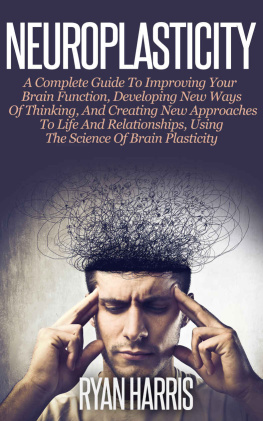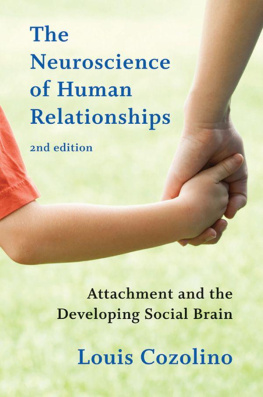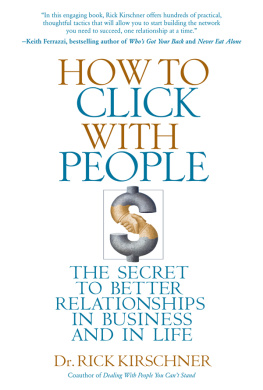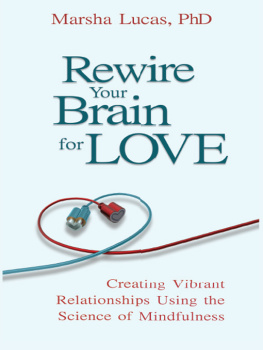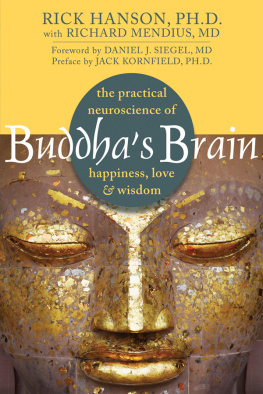Want to have more joy and contentment in your life? All the scientific studies of happiness, longevity, and mental and medical health point to one factor: the strength of your relationships with others. In Four Ways to Click, psychiatrist Amy Banks, M.D., provides an innovative and user-friendly summary of the extensive research on the neuroscience of relationships and offers readers practical ways to use this knowledge to retrain their brains for healthier, more rewarding relationships. Whats in this for you? Simply put, you can intentionally transform your life by improving how you connect with others. Relationships are not simply the icing on the cake for a life well lived. Relationships are the cake.
After decades of studying how culture shapes our relationships as well as working as a psychiatrist in clinical practice, Amy Banks has brilliantly created what she calls the C.A.R.E. system, which can help improve the four ways we click with one another: how calm we feel around others, are accepted by others, resonate with the inner states of others, and are energized by these connections. Using the C.A.R.E. system as it is described in this book, readers can target the neural pathways that need fine-tuning so that the quality of their relationships increases. With an understanding of how our brains truly work we can intentionally change how we live our lives!
I love this book! It is beautifully written, engaging, and inspiring.
Want more happiness? Want to live longer? Want to be healthier in mind and body? Then learning these four ways to click into more meaningful and rewarding relationships is your passport to achieving these goals. Let Amy Banks be your guide to a better life of love and laughter. Enjoy!
DANIEL J. SIEGEL, M.D.
Chapter 1
BOUNDARIES ARE OVERRATED
A New Way of Looking at Relationships
B oundaries are overrated.
If you want healthier, more mature relationships; if you want to stop repeating old patterns that cause you pain; if you are tired of feeling emotionally disconnected from the people you spend your time with; if you want to grow your inner life, you can begin by questioning the idea that there is a clear, crisp line between you and the people you interact with most frequently.
People who talk a lot about boundaries tend to make statements like these:
It shouldnt matter what other people do and say to you, not if you have a strong sense of self.
How do parents know theyve been successful? When their children no longer need them.
Best friends and true romance are for the young. As you get older, you naturally grow apart from other people.
You shouldnt need other people to complete you.
You wouldnt have so many problems if you would just stand on your own two feet.
The message is clear: its not healthy to need other peopleand whatever you do, dont let yourself be infected by other peoples feelings, thoughts, and emotions. The statements above are intended to have an emotional effect on you. You may notice that they sound just a teensy bit judgmental and shaming. I know they make me uncomfortable; when I read them, I feel like Im standing in a harsh white spotlight with someone pointing a finger at me, intoning Youre pretty messed up, missy, and its all your fault.
The ideal of complete psychological independence is one that was very big with mental health professionals in much of the twentieth century, and it still has our culture by the throat. So even if those statements about boundaries carry a sting, they also probably sound familiar to you, or even self-evident. Obvious!
So I couldnt possibly be suggesting that theyre untrue. I couldnt possibly say that it can be good to be dependent, or that our mental health is unavoidably affected by the people we share our lives with, or that we achieve emotional growth when we are profoundly connected to others instead of when we are apart from them.
Thats exactly what Im saying.
This book is going to show you a different way of thinking about your emotional needs and what it means to be a healthy, mature adult. A new field of scientific study, one I call relationalneuroscience, has shown us that there is hardwiring throughout our brains and bodies designed to help us engage in satisfying emotional connection with others. This hardwiring includes four primary neural pathways that are featured in this book. Relational neuroscience has also shown that when we are cut off from others, these neural pathways suffer. The result is a neurological cascade that can result in chronic irritability and anger, depression, addiction, and chronic physical illness. We are just not as healthy when we try to stand on our own, and thats because the human brain is built to operate within a network of caring human relationships. How do we reach our personal and professional potential? By being warmly, safely connected to partners, friends, coworkers, and family. Only then do our neural pathways get the stimulation they need to make our brains calmer, more tolerant, more resonant, and more productive.
The good news for those of us whose relationships dont always feel so warm or safe: it is possible to heal and strengthen those four neural pathways that are weakened when you dont have strong connections. Relationships and your brain form a virtuous circle, so by strengthening your neural pathways for connection, you will also make it easier to build the healthy relationships that are essential for your psychological and physical health.

